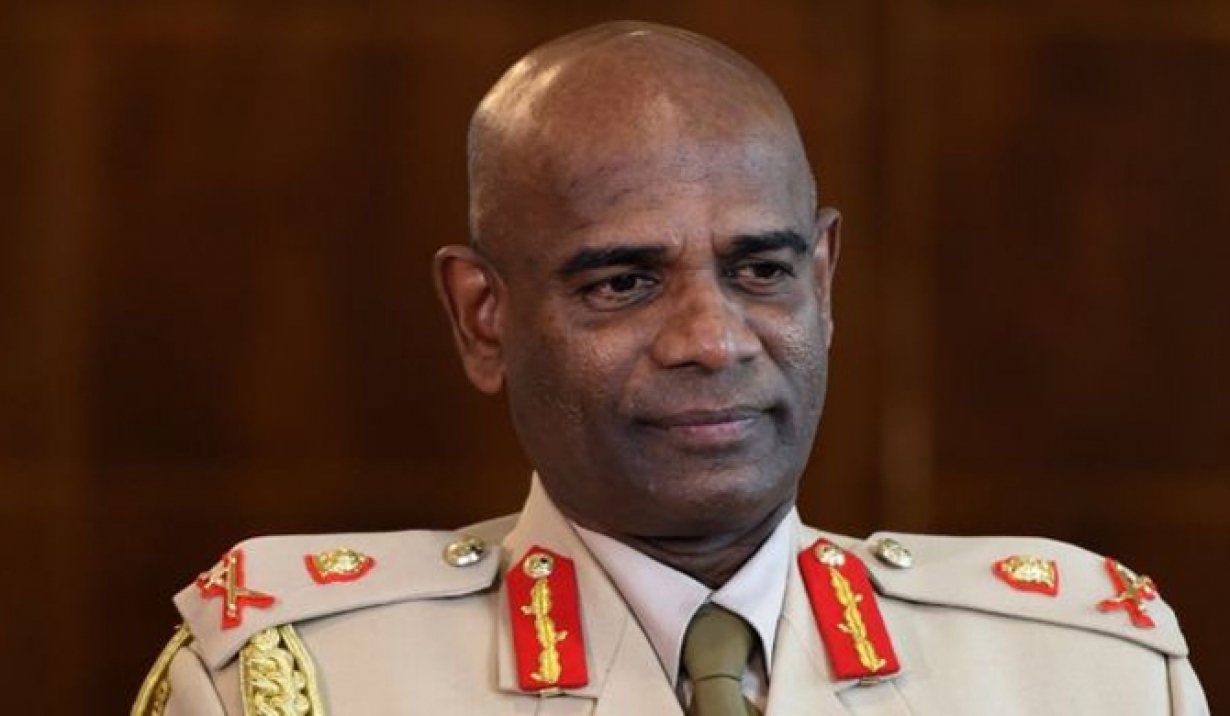
Sri Lanka's army commander, Mahesh Senanayake told the BBC "too much of freedom" had led to the Easter Sunday suicide bombings, which killed over 250 people.
"Too much of freedom, too much of peace for the last 10 years. People forget what happened for 30 years. People are enjoying peace and they neglected security," he said, when asked why Sri Lanka was targetted.
The bombings were carried out by Islamist extremist groups supportive of Islamic State, targetting luxury hotels and churches.
Whilst the government has banned the two main organisations, National Thawheed Jammath (NTJ) and Jamathei Millathu Ibraheem (JMI), there has been increasing criticism over the government's failure to take action to prevent the attacks after it emerged India had warned Sri Lankan authorities repeatedly in the preceding weeks that such an incident was planned.
Questions have also been raised over the organisations' links with government security forces and intelligence, with reports that the intelligence authorities funded NTJ.
One Sri Lankan soldier is currently on the run after authorities said they believed he had taught the attackers how to use explosives.
Yesterday a parliamentarian claimed the former defence secretary Gotabaya Rajapaksa gave NTJ land for an office in Colombo.
Kurunegala District UNP MP Thushara Indunil however claimed that the NTJ received support from Rajapaksa, who announced that he would the running for president in elections set to be held later this year.
Indunil said the All Ceylon Jamiyathul Ulema had warned the Sri Lankan government “as early as 2014” about the emergence of the NTJ and Islamic extremists on the island. “If the former Defence Secretary was privy to this information, we ask of what he did then, knowing the threats it posed,” he said.
Read more: Gotabaya gave NTJ office in Colombo, claims Sri Lankan MP
“He tried to divide the peaceful community of Muslims into two. He knew that it would help him in his political endeavours which is why he strengthened one group against the other. Basil Rajapaksa said that there are 200 such mosques and the defence secretary assisted in setting them up.”
Cabinet spokesperson Rajitha Senaratne said that at least four army officers were involved in organising the assassination of police officers in Batticaloa last year, and claimed dozens of NTJ were on the payroll of Sri Lankan intelligence linked to Rajapaksa.
Read more: NTJ paid by Sri Lankan intelligence, soldiers organised police murder - cabinet spokesperson
Commenting on the bombers, Senanayake said they had travelled to India prior to the attacks.
"They had gone to India, Kashmir, Bangalore, Kerala state. Those are the information available with us... Possibly for some sort of training or to make some more links towards the other organisations outside the country."
Since the bombings, India's National Intelligence Agency (NIA) has conducted a number of raids across Tamil Nadu and Kerala.
Read more: Indian intelligence agency conducts raids in Tamil Nadu and Kerala
